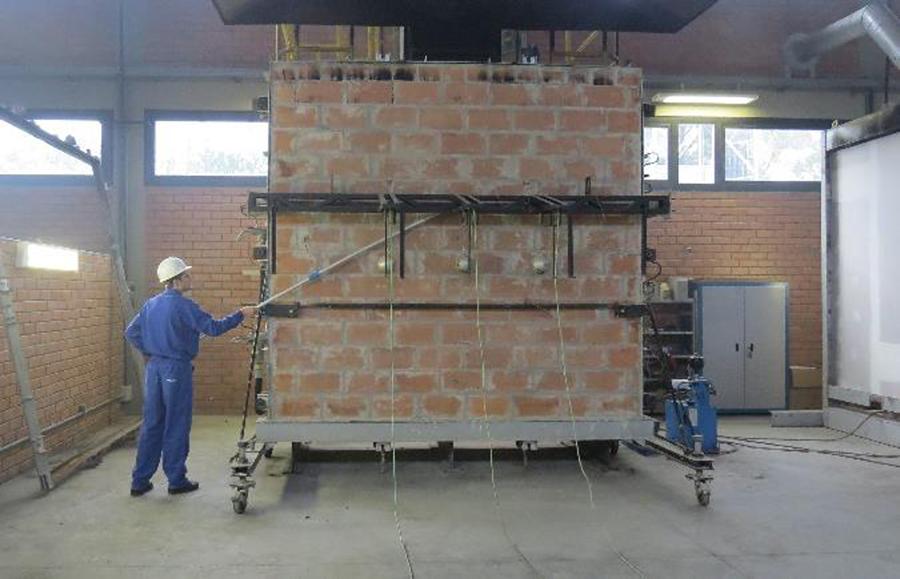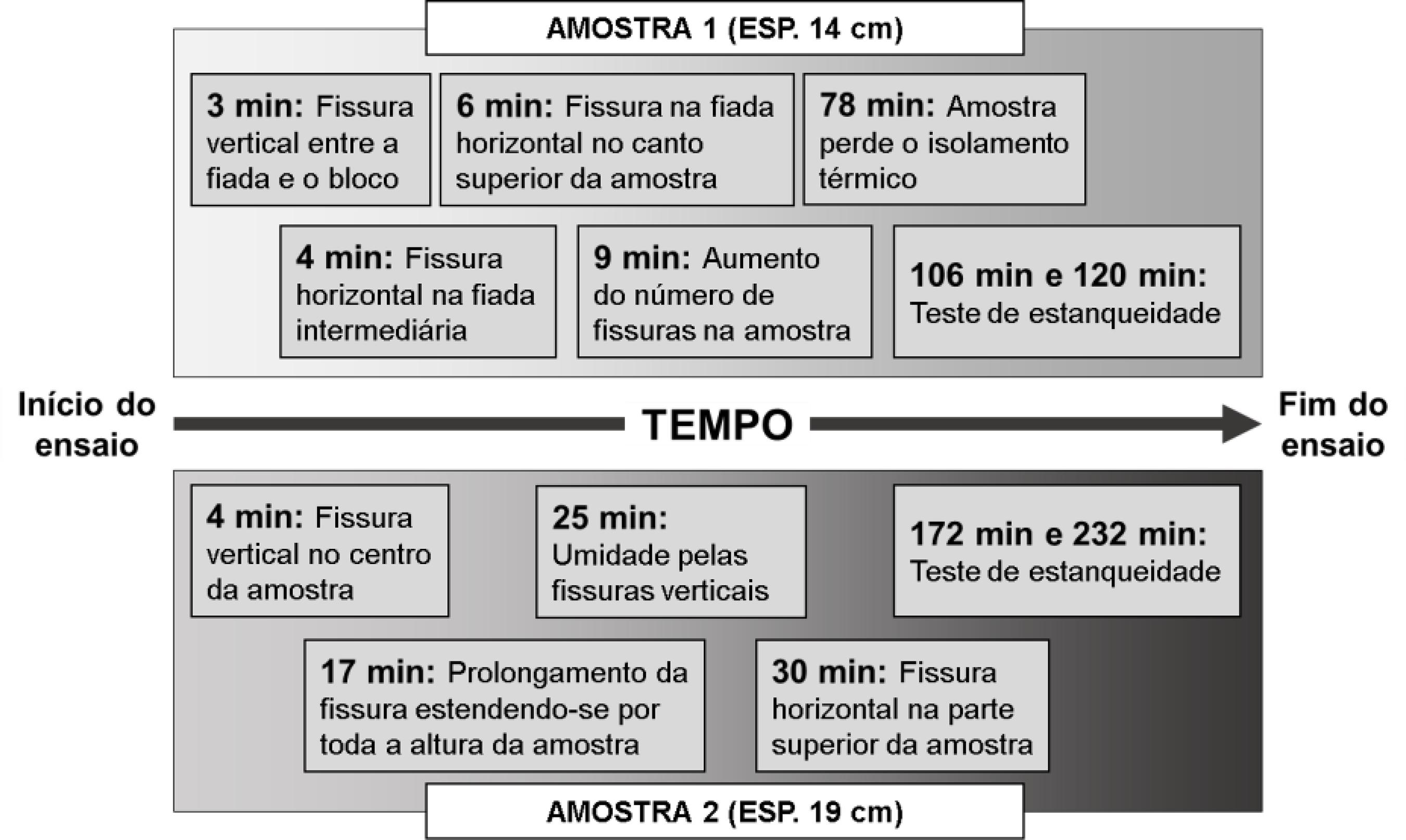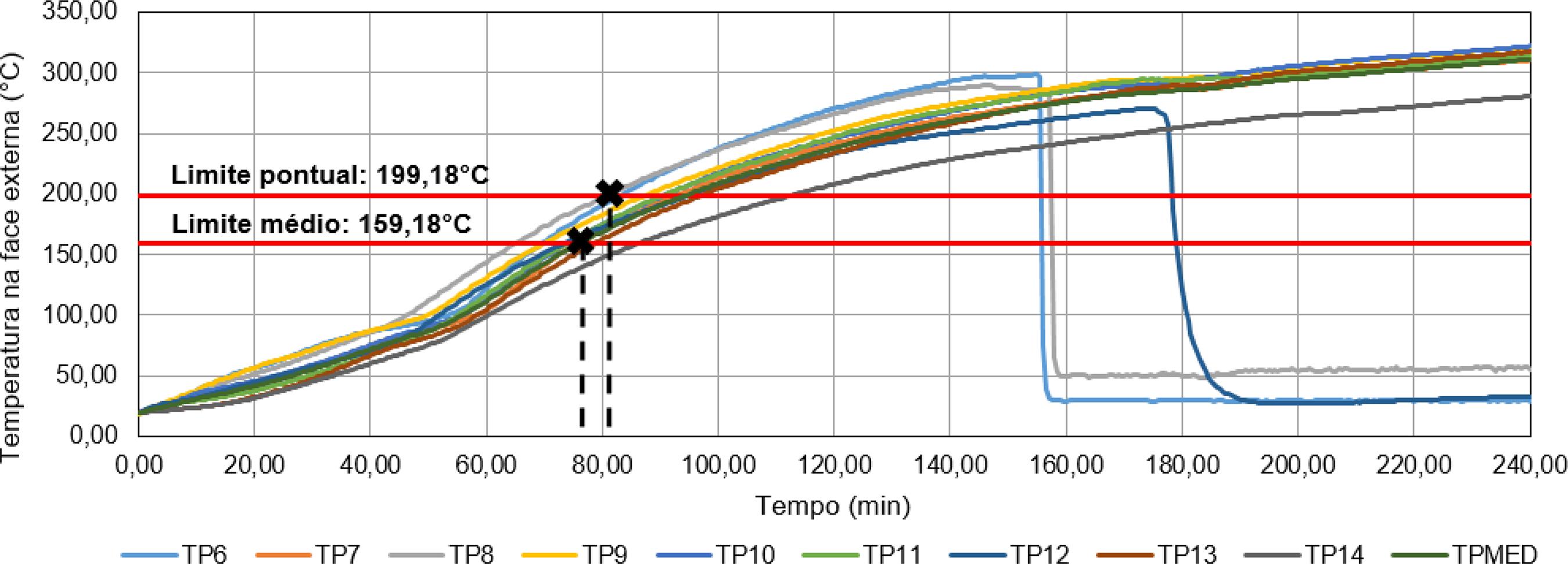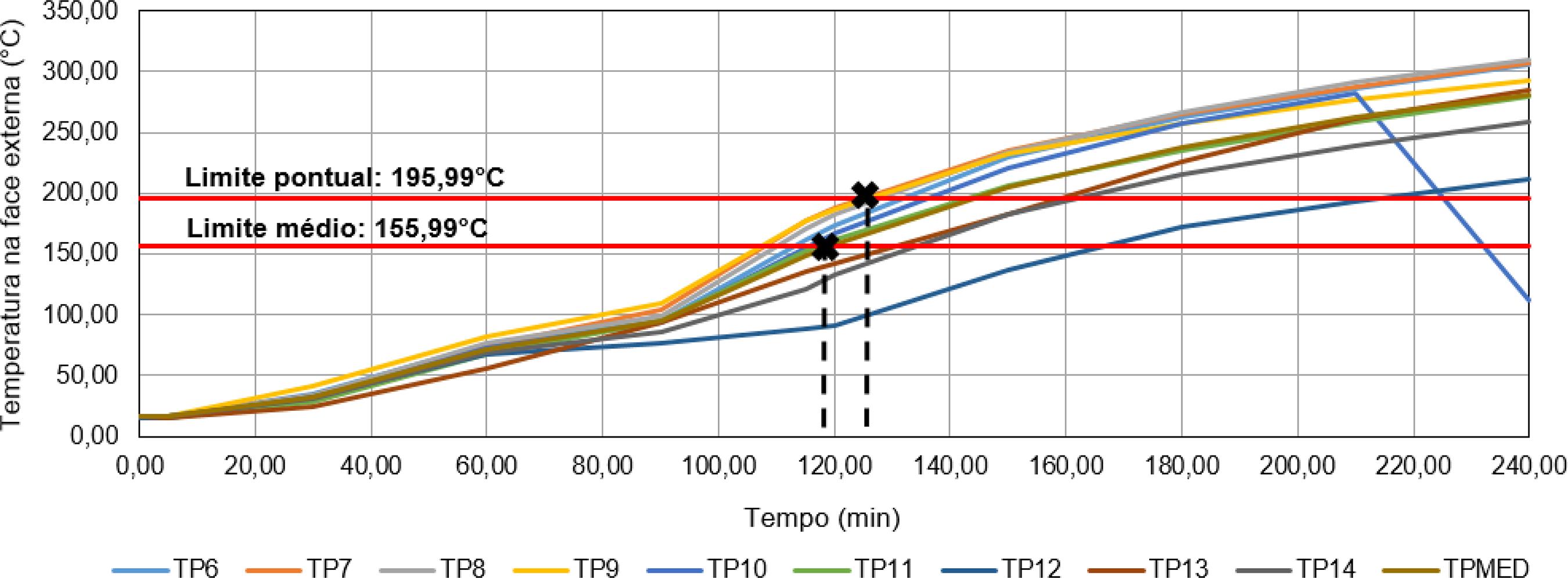Abstract
After the Brazilian performance housing standard, NBR 15575 (ABNT, 2013ASSOCIAÇÃO BRASILEIRA DE NORMAS TÉCNICAS. NBR 15575: edificações habitacionais: desempenho. Rio de Janeiro, 2013.) was introduced, various sectors of the industry sought to evaluate, certify and improve their systems in order to meet the requirements of the standard. Masonry walls are one type of these systems. The ceramic industry has blocks with different characteristics, which require a more detailed analysis. One of the performance requirements is fire resistance of this construction system, which is not covered by Brazilian standards. This study aimed to evaluate the fire resistance of two walls, consisting of blocks 14 cm and 19 cm thick, evaluating the criteria for structural stability, integrity and thermal insulation for a period of 240 min. In the experimental analysis, the systems fulfilled the criteria of stability and integrity satisfactorily throughout the test, but failed the thermal insulation criteria at 60 and 90 min for smaller and thicker walls respectively. Concerning the theoretical analysis, a fire resistance time was observed up to 30% lower than that obtained experimentally.
Keywords:
Masonry; Performance; Fire safety

 Fonte: adaptada de
Fonte: adaptada de 










